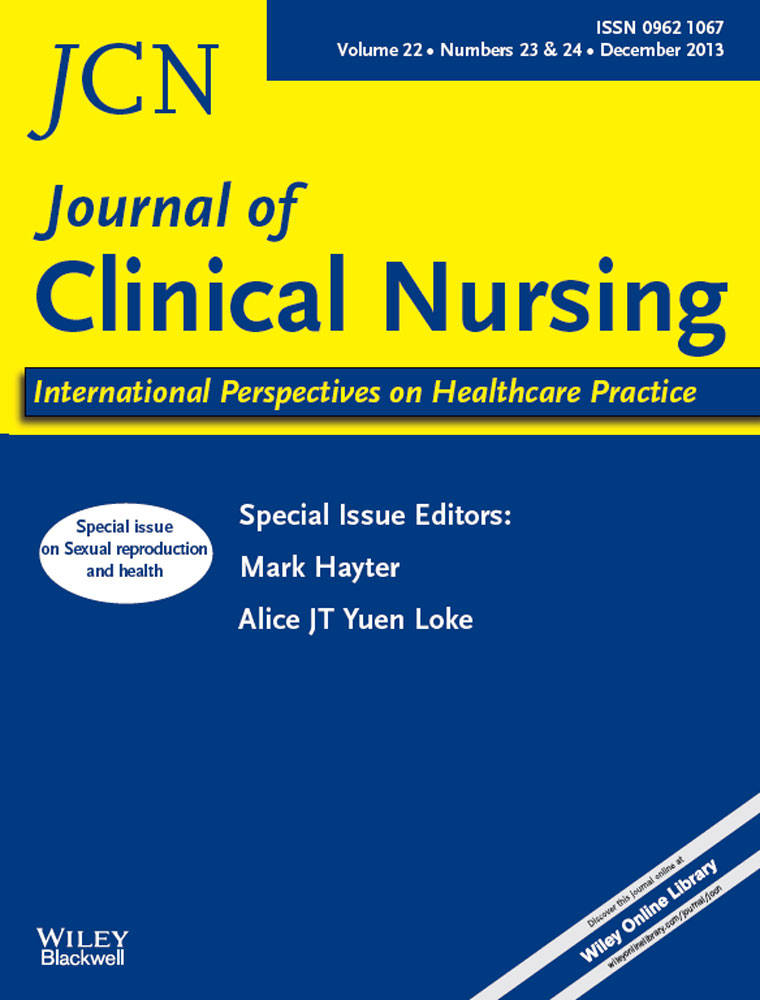Group psychotherapy in women with a history of sexual abuse: what did they find helpful?
Abstract
Aims and objectives
To define the effects of group psychotherapy in women with a history of sexual abuse, to find possible predictors for dropout and treatment outcome rates and to find which therapeutic factors of group psychotherapy are perceived by group members to be most helpful.
Background
Sexual abuse of women is a global concern and causes many psychiatric and psychological sequelae. Group psychotherapy is one of the preferred treatment modalities.
Design
Prospective cohort study.
Methods
Forty-seven women with a history of childhood and/or adulthood sexual abuse were recruited for weekly 12-session group psychotherapy. Subjects were given the Hamilton Depression Rating Scale, the Hamilton Anxiety Rating Scale, the Clinician Administered Post-traumatic Stress Disorder Scale, the Dissociative Experiences Scale, the Childhood Trauma Questionnaire and the Group Therapeutic Factors Questionnaire. Re-evaluations were made after the 6th and 12th session and also at a six-month follow-up session.
Results
Group psychotherapy significantly reduced participants' levels of depression (screening/12th session mean scores, 22·45/11·10), anxiety (15·45/4·32) and symptoms of post-traumatic stress disorder (42·27/9·32), and this decline became statistically significant at the 6th session and tended to persist at the six-month follow-up. Higher levels of dissociative symptoms at baseline were associated with less response to treatment, but higher levels of attendance at group sessions. Group members rated existential factors (41·40 ± 12·39), cohesiveness (37·42 ± 8·32) and universalism (37·56 ± 7·11) as the most helpful therapeutic factors.
Conclusion
Group psychotherapy was significantly effective in reducing levels of depression, anxiety and posttraumatic stress disorder symptoms in this sample of women. Dissociation had a significant effect on both treatment outcome and treatment adherence. For this sample of women, group psychotherapy was most helpful for reducing feelings of stigma, isolation and shame.
Relevance to clinical practice
Group psychotherapy can be used as a preferred treatment method for women from different cultural backgrounds with a history of sexual abuse.




